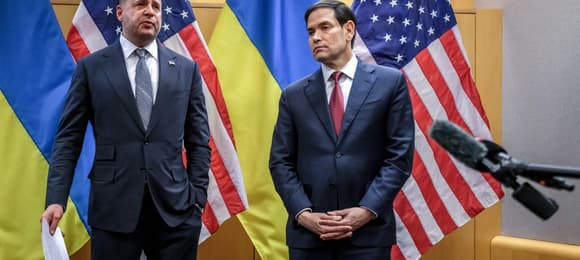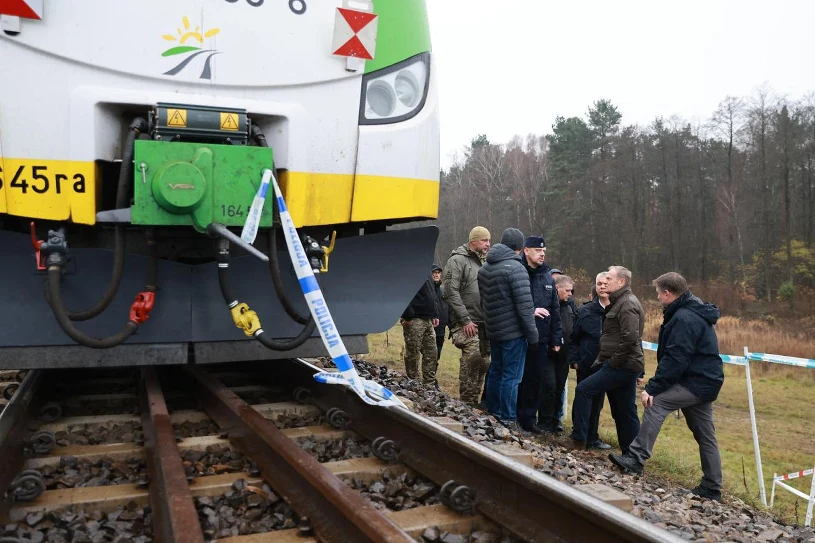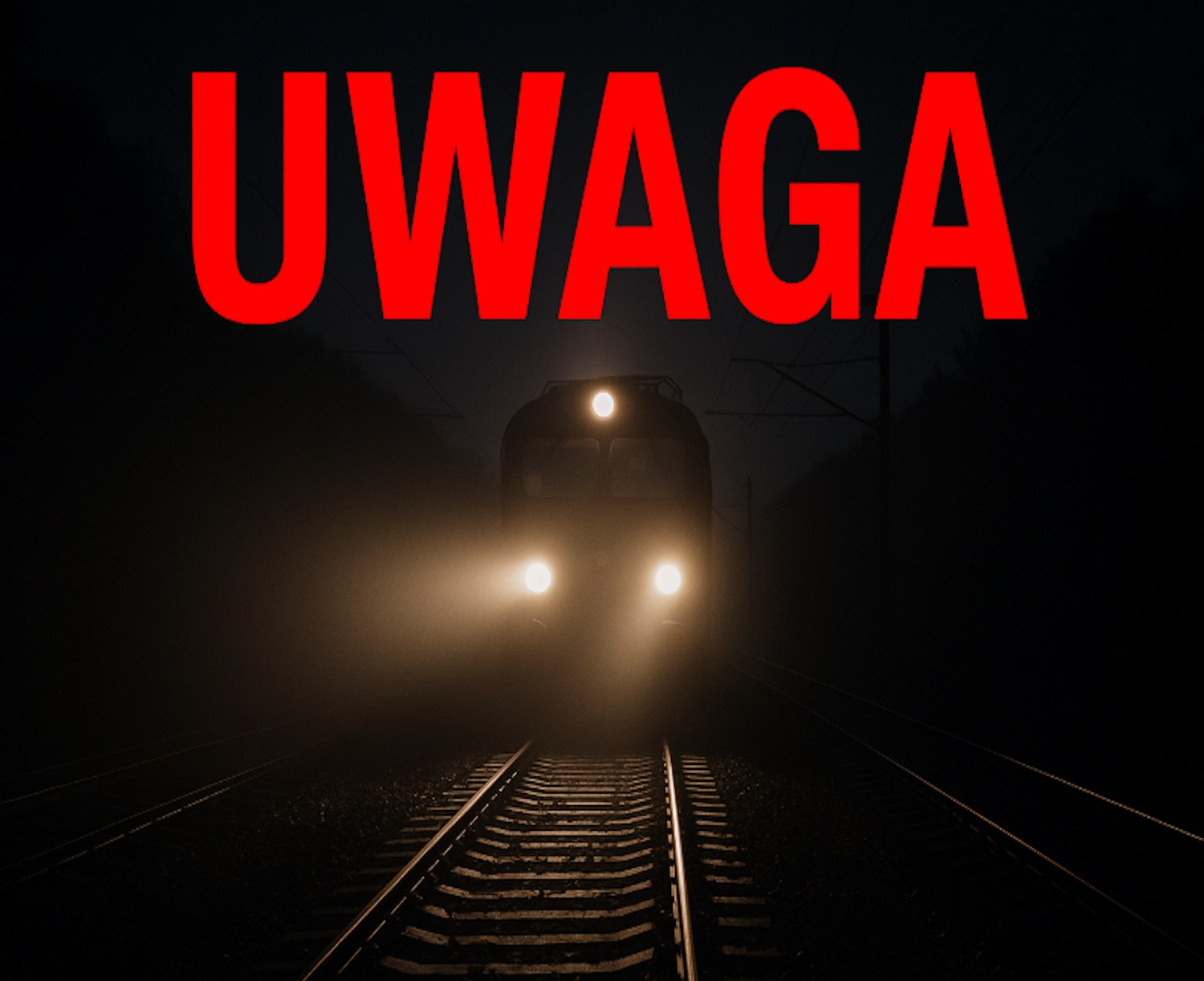Benz & Tucker: Inside America’s Hidden Power Network: NGOs, The CIA, And The Rise Of The Blob
Former State Department official and director of Foundation for Freedom Online Mike Benz sat down once again with Tucker Carlson, where he laid out a labyrinthine narrative about U.S. power and influence that should come as no surprise to those who have been paying attention. Benz described the role non-governmental organizations (NGOs), intelligence agencies, and private philanthropic empires have engaged in to quietly shape global and domestic affairs.
„NGOs are the stem cell of the government’s central nervous system,” Benz said, adding „They are this highly flexible tool…you can’t disentangle or really separate the government from the non-governmental organizations.”
According to Benz, the US often wields power through unofficial channels – increasingly through a network of publicly funded and privately directed institutions Benz dubbed „the Blob,” a term originally coined by Ben Rhodes, a former deputy national security advisor to President Obama.
A History Rooted in Covert Strategy
According to Benz, the roots of this NGO influence structure go back to the early 20th century, with the 1913 introduction of the income tax and the subsequent 1917 law making contributions to charities tax-deductible. This opened a floodgate of elite philanthropy which, during World War II and the Cold War, merged with U.S. intelligence objectives.
„In 1948,” said Benz, „the CIA achieved its first covert operation: rigging the Italian election by working through trade unions, charity fronts, and other non-profits.” He cited a now-declassified memo by diplomat George Kennan, who described the need for a „Bureau of Political Warfare” and endorsed a system where covert influence would appear to originate from civil society.
Benz divided the „Blob” into three strata: official government actors (State Department, Pentagon, CIA, USAID), a network of NGOs funded and coordinated by these agencies, and the „donor-drafter class” – high-net-worth individuals like George Soros and Bill Gates, whose foundations shape U.S. foreign policy priorities.
„They don’t just donate into it. Like in a bike race, you always want to be not in first, you want to be right behind the guy in first… The Pentagon cuts the wind for companies,” he explained.
Soros, Mongolia, and Market Influence
A centerpiece of the discussion was George Soros, the financier and founder of the Open Society Foundation. According to Benz, the foundation frequently collaborates with the State Department and U.S. embassies abroad. In Mongolia, he said, Soros-affiliated organizations stymied a mining deal they deemed insufficiently favorable to the private sector. Soon after, the Soros Management Fund purchased a large stake in the mine’s corporate parent.
„In 2009, the George Soros Management Fund purchased an absolutely huge stake in that very company,” Benz stated, referring to Ivanhoe Mines (later Rio Tinto).
The U.S. Institute of Peace and the Shadow State
One of Benz’s more startling claims centered on the U.S. Institute of Peace (USIP), a federally funded think tank chartered by Congress in 1984. Benz alleged that the organization had resisted oversight by Trump-appointed officials, deleted financial records, and was indirectly linked to funding Taliban networks.
„They deleted a terabyte worth of financial data,” Benz said. „Doge says it recovered [it] and showed payments to those very Taliban networks.”
„Now the peace people are stockpiling weapons,” Carlson replied.
International Peace has a funny history with US intelligence work. In the JFK files, for example, in the recent declassifications, it showed a group that the CIA infiltrated and directed called the Catholic Association of International Peace. And there are all these files that show that, yes, we have our assets in here, and they’re doing this for this. The Carnegie Endowment for International Peace, not the Catholic Association for International Peace, but a second international peace group, the Carnegie Endowment for International peace was run from 2014 to 2021 by Bill Burns, the guy who would leave the Carnegie endowment for international peace to run the Central Intelligence Agency.
…
Now the Trump administration tried to assert control over the US institute of peace as it is statutorily entitled to do. And the response from the US Institute of Peace was to barricade the doors. To delete, Doge said a terabyte worth of financial data, which Doge says it recovered and showed payments to those very Taliban networks that they were saying keep the drugs flowing. Evidently, according to the Doge team, they found weapons caches inside, like a full military, you know. They found weapons. -Mike Benz
The CIA’s Role in Education
Benz described CIA influence in global education initiatives during the Cold War and suggested that those same frameworks have been repurposed to counter right-wing populism.
„All of this was repurposed against right-wing populism when Trump won in 2016,” he said.
He claimed that international teaching organizations such as Education International have roots in CIA-affiliated groups and are still active in political campaigns, such as opposition to Germany’s right-wing Alternative für Deutschland (AfD) party.
Benz stressed the alignment of foreign policy objectives with corporate profit motives. For example, AT&T winning telecom contracts in Syria after the U.S. supported regime change.
The US National Police would not even allow the Trump-appointed board members or its president to even go in the building. That’s why the federal police had to, the FBI had to come in and in, but what happened was is that same lawyer also happens to represent the Wireless Trade Association in the US and AT&T in that whole network. So while they are working for regime change in Syria, while the US Institute of Peace is taking US taxpayer money, $55 million a year, to build up this network of paramilitary groups and all these economic assistance programs and midwifing the political negotiations. -Mike Benz
„AT&T just secured 25 million customers effectively…with the barrel of a gun,” said Benz.
Carlson added, „You know that we’re monitoring it,” referring to AT&T’s newly acquired user base.
Ukraine, BRICS, and the Limits of U.S. Power
Carlson and Benz then discussed the changing global order, noting the rise of BRICS and the decline of U.S. unipolar dominance.
„Trump is between a blob and a hard place,” said Benz, pointing to legislative resistance to defunding programs like USAID.
Carlson asked whether those in power „realize their 1980s assumptions have been overtaken by events.”
„I think they do,” Benz replied. „This is part of the global alliance structure. I don’t think the Biden administration moved unilaterally. They work in tandem with the EU on all things.”
Watch the entire interview below:
Tyler Durden
Tue, 05/27/2025 – 20:30

 5 miesięcy temu
5 miesięcy temu













